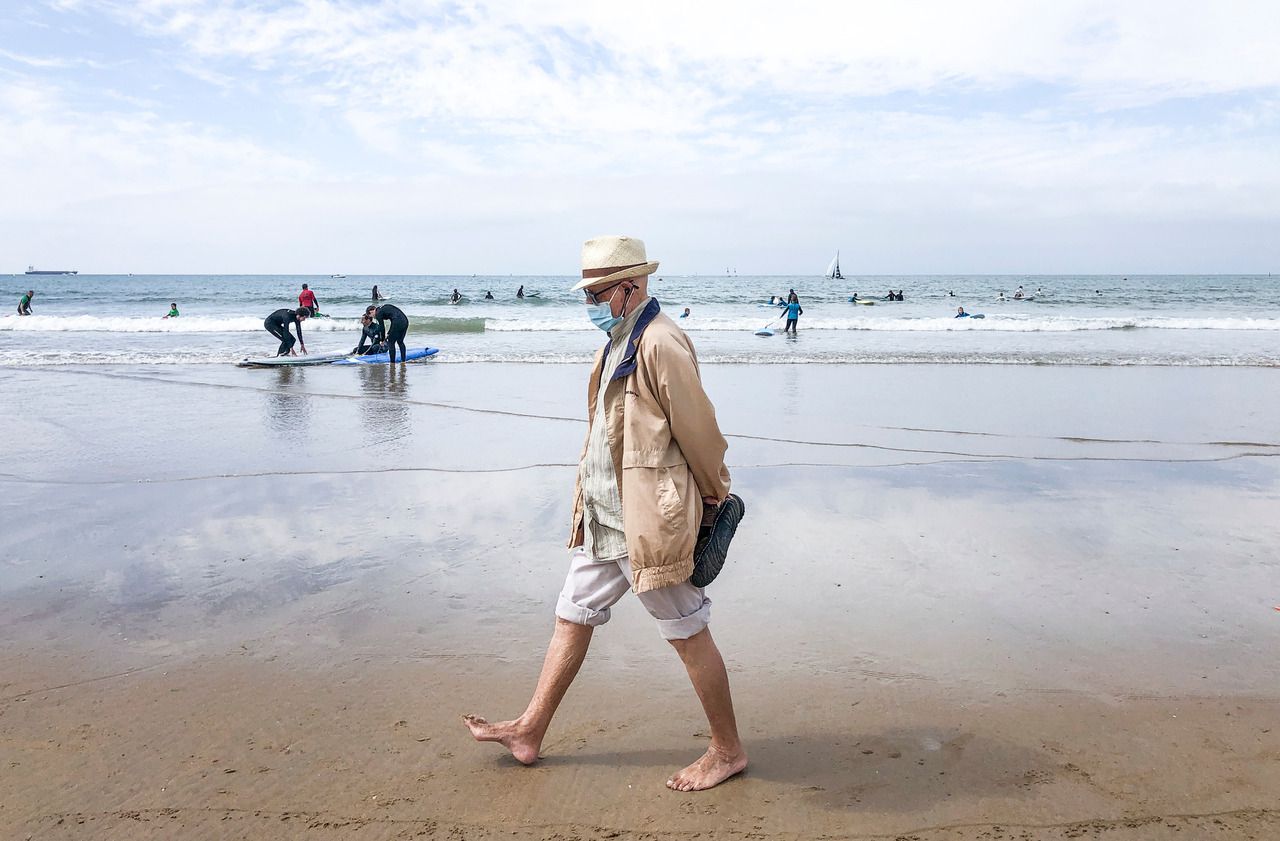After forcing us to stay confined at home for long weeks, the coronavirus is still doing its part. Nothing so radical of course, but these summer vacations are still experienced in a very special way. No long-distance travel due to the closure of many borders and sometimes restrictive conditions in certain European countries.
The vast majority of holidaymakers therefore remain "confined" to France and adapt: by wearing the mask in closed public places, we more or less respect social distances on the beach, and by choosing to leave, very often at the last moment, in such and such a region rather than another because it is less affected by the epidemic. Very funny holidays!
The Covid gives the "the"
"At the beginning of July, 7 million French people, against 3 to 4 usually, still did not know what they were going to do or where they were going to go on vacation during the summer," notes Didier Arino, director of the Protourisme expert office. Because of the Covid, they put themselves on hold to make the best decisions. "
Result: at the slightest announcement in the media of the appearance of a cluster in a place, as in Mayenne or Quiberon recently, cancellations follow one another and reservations stop. This propensity to change plans at the very last minute is also illustrated when the authorities announce a tightening of the rules or recommend, as the Prime Minister has just done, not to go to Catalonia.
Once at destination, the respect of the sanitary rules does not agree at all with the "holiday spirit", it also changes the situation: to wear the mask, to respect social distances or to be patient before being able to take a dip in the sea. swimming pool already too busy ... "It goes well most of the time but you are never safe from a customer who gets angry and does not understand why he must be forced in this way", confides the manager of 'an independent campsite on the Normandy coast.
Brittany at the top, Corsica at half mast
As usual, the coast is full, but the Brittany region is particularly benefiting from the situation. Which is not without creating some tension between locals and tourists. The clientele is changing. Some catering professionals are a little annoyed by the reactions, sometimes excessive, of Parisians accustomed to traveling abroad and therefore very demanding.
Large cities, including Paris, and heritage sites (Mont Saint-Michel, Loire castle) particularly suffer from the absence of foreign tourists: less 80% of the English, less 75% of the Germans, 65% of the Dutch! The mountain ranges (with a drop in attendance of 10 to 15% according to the firm Protourisme), or even rural areas (- 30 to 40% attendance in Ardèche or Dordogne) suffer from an astonishing lack of visitors that the we believed attracted by the promise of clean air and wide open spaces.
Corsica is living a black summer. The occupancy rates, in July, are exceptionally low and painfully reach 50%, against 90% during this period normally, according to the statements of the Regional Union of Trades and Industries of the Hotel Industry (Umih). A “disaster announced” for Didier Arino: “Corsica is suffering a quadruple penalty. There was first the incomprehensible desire to impose a health passport to get there, then crossing and air links prices that exploded, canceled flights in shambles then and, finally, a glaring lack of rental cars on site… ”
From traveler to excursionist
Even if the rentals of individual houses (lodges, accommodation via Airbnb, etc.) are the most popular, the way people visit the coast is also changing.
Newsletter - Most of the news
Every morning, the news seen by Le ParisienI'm registering
Your email address is collected by Le Parisien to enable you to receive our news and commercial offers. Learn more
"For fear of the Covid, many French people living within 250 km of a seaside prefer to stay at home rather than book tourist accommodation there for a few days as they did in previous years," continues the expert. They go to the beach during the day, in excursion mode, and come home in the evening. "
This phenomenon was particularly illustrated during the extended weekend of July 14, which was very popular in all the seaside resorts in France.



/cloudfront-eu-central-1.images.arcpublishing.com/prisa/OOLBKF5K4VFN7EA7IFFA4PMVUE.jpg)





